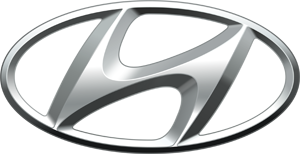By Helgi Library - September 26, 2020
Hyundai Motor Company made a net profit of KRW 463 bil with revenues of KRW 25,319 bil in 1Q2020, down by 44.1% and up by...
By Helgi Library - September 26, 2020
Hyundai Motor Company made a net profit of KRW 463 bil with revenues of KRW 25,319 bil in 1Q2020, down by 44.1% and up by...
By Helgi Library - September 26, 2020
Hyundai Motor Company generated sales of KRW 25,319 bil in 1Q2020, up 5.55% compared to the previous year. Historically, be...
| Profit Statement |
| Balance Sheet |
| Ratios |
| Valuation |
Get all company financials in excel:
Get all company financials in excel:
By Helgi Library - September 26, 2020
Hyundai Motor Company generated sales of KRW 25,319 bil in 1Q2020, up 5.55% compared to the previous year. Historically, between 1Q1995 and 1Q2020, the company’s sales reached a high of KRW 27,824 bil in 4Q2019 and a low of KRW 2,424 bil in 1Q1998. ...
By Helgi Library - October 12, 2020
Hyundai Motor Company's total assets reached KRW 198,851 bil at the end of 1Q2020, up 8.86% compared to the previous year. Current assets amounted to KRW 76,223 bil, or 38.3% of total assets while cash stood at KRW 25,490 bil at the end of ...
By Helgi Library - October 12, 2020
Hyundai Motor Company's total assets reached KRW 198,851 bil at the end of 1Q2020, up 8.86% compared to the previous year. Current assets amounted to KRW 76,223 bil, or 38.3% of total assets while cash stood at KRW 25,490 bil at the end of ...
By Helgi Library - September 26, 2020
Hyundai Motor Company's operating cash flow stood at KRW 822 bil in 1Q2020, down 12.1% when compared to the previous year. Historically, between 1Q1995 - 1Q2020, the firm’s operating cash flow reached a high of KRW 3,612 bil in 2Q2013 and a low of KRW ...
By Helgi Library - September 26, 2020
Hyundai Motor Company's operating cash flow stood at KRW 822 bil in 1Q2020, down 12.1% when compared to the previous year. Historically, between 1Q1995 - 1Q2020, the firm’s operating cash flow reached a high of KRW 3,612 bil in 2Q2013 and a low of KRW ...
By Helgi Library - September 26, 2020
Hyundai Motor Company employed 122,217 employees in 2019, up 0.59% compared to the previous year. Historically, between 2009 and 2019, the firm's workforce hit a high of 122,217 employees in 2019 and a low of 78,639 employees in 2009. Average personn...
By Helgi Library - September 26, 2020
Hyundai Motor Company employed 122,217 employees in 2019, up 0.59% compared to the previous year. Historically, between 2009 and 2019, the firm's workforce hit a high of 122,217 employees in 2019 and a low of 78,639 employees in 2009. Average personn...
By Helgi Library - September 26, 2020
Hyundai Motor Company made a net profit of KRW 2,980 bil with revenues of KRW 105,746 bil in 2019, up by 97.6% and up by 9.23%, respectively, compared to the previous year. This translates into a net margin of 2.82%. On the operating level, EBITDA reached...
By Helgi Library - September 26, 2020
Hyundai Motor Company made a net profit of KRW 2,980 bil with revenues of KRW 105,746 bil in 2019, up by 97.6% and up by 9.23%, respectively, compared to the previous year. This translates into a net margin of 2.82%. On the operating level, EBITDA reached...
By Helgi Library - September 26, 2020
Hyundai Motor Company stock traded at KRW 120,500 per share at the end 2019 translating into a market capitalization of USD 21,060 mil. Since the end of 2014, stock has depreciated by 17.4% representing an annual average growth of -3.76%. In absolute te...
The Hyundai Motor Group is a South Korean conglomerate company headquartered in Seoul, South Korea. It is the second largest automaker in Asia after Toyota and the world's fourth largest automaker after Toyota, GM, and Volkswagen as of the end of 2010. The group was formed through the purchase of 51% of South Korea's second-largest car company, Kia Motors, by the Hyundai Motor Company in 1998. It is the third-largest South Korean Chaebol or conglomerate after the Samsung Group and LG Group and was previously known as the Hyundai Motor Group. In the middle of 2011, Hyundai owned 49.2% of Kia Motors

Hyundai Motor Company has been growing its sales by 3.45% a year on average in the last 5 years. EBITDA has fallen on average by 7.62% a year during that time to total of KRW 6,320 bil in 2019, or 5.98% of sales. That’s compared to 6.98% average margin seen in last five years.
The company netted KRW 2,980 bil in 2019 implying ROE of 3.05% and ROCE of 2.01%. Again, the average figures were 4.49% and 3.09%, respectively when looking at the previous 5 years.
Hyundai Motor Company’s net debt amounted to KRW 56,766 bil at the end of 2019, or 74.3% of equity. When compared to EBITDA, net debt was 8.98x, up when compared to average of 7.21x seen in the last 5 years.
Hyundai Motor Company stock traded at KRW 120,500 per share at the end of 2019 resulting in a market capitalization of USD 21,060 mil. Over the previous five years, stock price fell by 17.4% or -3.76% a year on average. The closing price put stock at a 12-month trailing EV/EBITDA of 3.79x and price to earnings (PE) of 10.7x as of 2019.